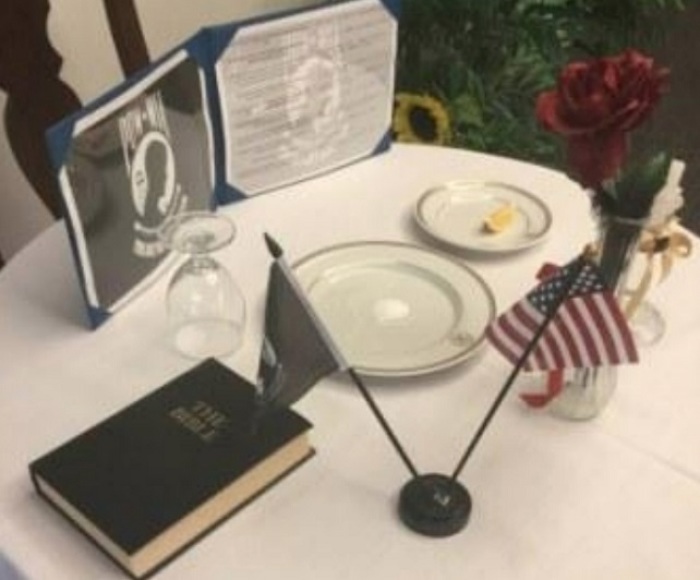Investigation Launched After Complaint About Bible Display at Navy's Largest Overseas Hospital

The U.S. Navy has launched a probe at its largest overseas hospital, the Naval Hospital Okinawa in Japan, after sailors there allegedly attempted to unlawfully convert Japanese citizens to Christianity with a public "Missing Man" display.
Rear Adm. Paul D. Pearigen, commander of San Diego-based Navy Medicine West, told The San Diego Union-Tribune on Friday that an investigation of the display had been ordered.
The Missing Man display is a tradition that began at the end of the Vietnam War in which a separate table is set in honor of prisoners of war and missing comrades. The table is usually decorated with special items including a Bible. The Bible represents faith in a higher power and the pledge to America, founded as one nation under God, according to Navy Live, the official blog of the U.S. Navy.
A report from the Military Religious Freedom Foundation last Thursday, however, said the New York-based Law Office of Donald Rehkopf Jr. had filed a complaint on behalf of the foundation and 26 families on Okinawa demanding the immediate removal of the Bible from the display at the hospital. The complaint also demanded the removal of written materials that describe the United States as being "founded as one nation under God."
"The statement on the exhibit's placard is nothing more than an illegal, unconstitutional proselytization from an extremist, fundamentalist Christian sect. It ignores all followers of other religions and totally ignores all those who subscribe to no religion — all in blatant violation of (Department of Defense) and (Department of the Navy) regulations," claims Rehkopf Jr. in the complaint.
The MMRF also called for "appropriate disciplinary measures" for those responsible for the display.
"Why is that Bible there? Can you imagine if somebody put a Quran there, or the book of Satan, or the Book of Mormon? It violates the [First Amendment's Establishment Clause] as well as DOD and Navy regulations," Mikey Weinstein, MMRF founder said.
Weinstein told The San Diego Union-Tribune that prior to filing the formal complaint, they reached out to officials at the hospital who were not responsive.
"We reached out initially to the hospital at the beginning of the week but they didn't take care of this," Weinstein, a former Air Force officer, told the publication. "This should've been simple. We've engaged many times on this issue everywhere, and it's taken care of quickly. Here, they translated a phrase into Japanese in order to proselytize the Japanese. This might've violated our treaty with Japan."
He noted that more than half, 16 of the 26 petitioners behind the complaint, identify as Christians while the others are a mix of Jews, Native American, Shintoists, Buddhists, atheists and agnostics.
The U. S. Naval Hospital Okinawa serves a beneficiary population of 55,000 active duty personnel, family members, civilian employees, contract personnel, and retirees, according to the hospital's website. It also provides referral services for nearly 189,000 beneficiaries throughout the western Pacific. It is jointly staffed by active duty Navy, Army, Air force, and Marine Corps personnel, as well as U. S. civilians, contractors, and Japanese employees.
Only about 1.5 percent of the country's more than 126 million citizens are Christians. The majority practice Shintoism, followed by Bhuddism.





























